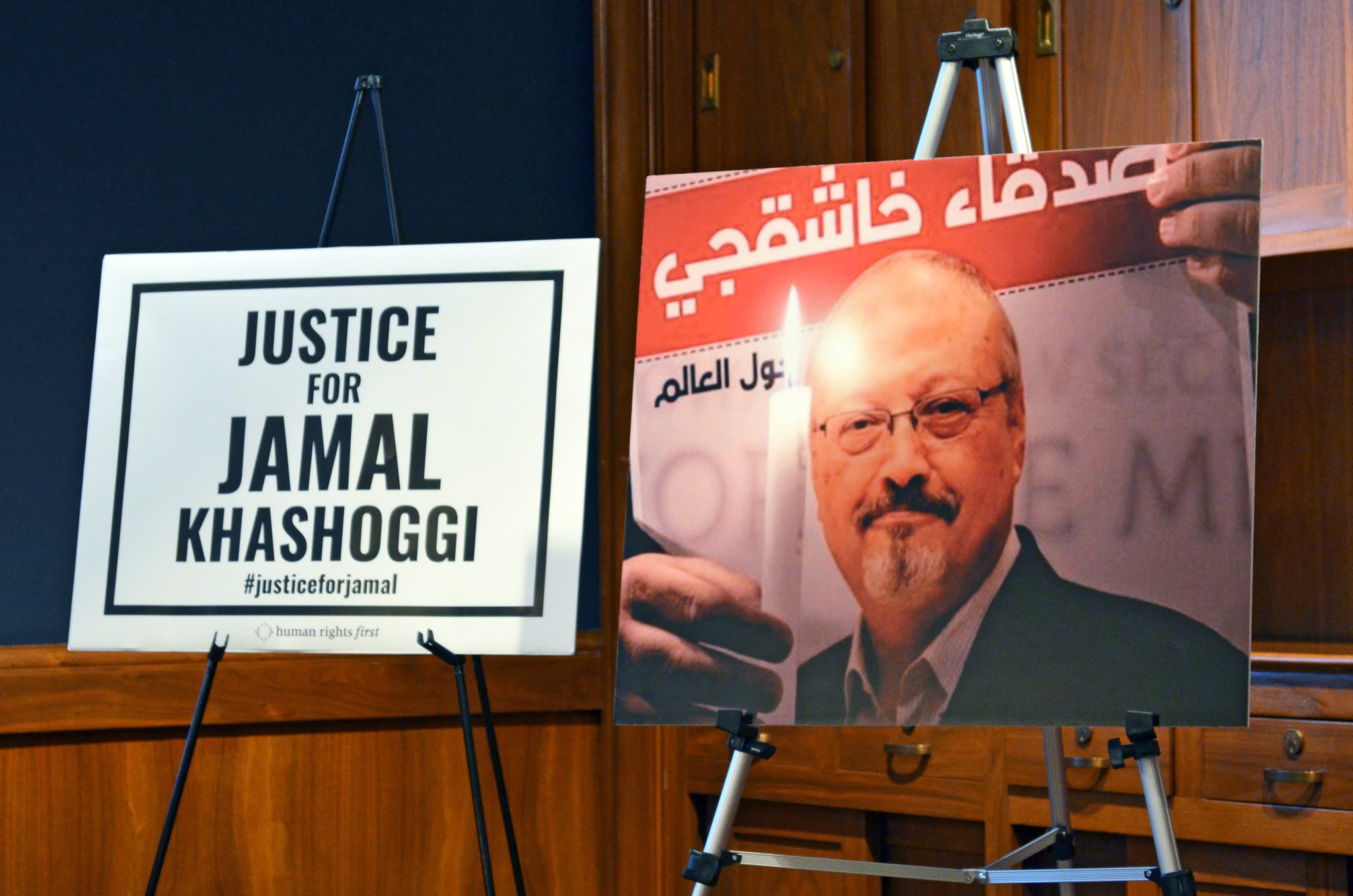On October 2nd of 2018, Washington Post columnist Jamal Khashoggi walked into the Saudi consulate in Istanbul. This would be the last time Jamal Khashoggi would be seen alive. Why Jamal Khashoggi was murdered can be a very harsh and chilling reminder of the nature of power in authoritarian countries and how it can be used to commit terrible atrocities without fear of consequence.
On October 2nd of 2018, Washington Post columnist Jamal Khashoggi walked into the Saudi consulate in Istanbul, Turkey with the intention of grabbing paperwork for his upcoming wedding to Turkish national Hatice Cengiz. This would be the last time Jamal Khashoggi would be seen alive. His disappearance sparked an uproar in the international community due to his criticisms of the Saudi Crown Prince, Mohammad bin Salman. Almost immediately, the general consensus around the world accepted the likely scenario that Khashoggi was murdered by men sent by Salman.
As seen by multiple journalistic sources, including the BBC, Saudi agents had kidnapped and butchered him. In an op-ed for The Washington Post, Cengiz pleaded with the United States (of which Khashoggi was a legal resident at the time) to bring some sort of justice for what happened to her lover but the politics over U.S. arms sales to Saudi Arabia made it difficult for the U.S. to make such an endeavor happen. Why Jamal Khashoggi was murdered can be a very harsh and chilling reminder of the nature of power in authoritarian countries and how it can be used to commit terrible atrocities without fear of consequence.
Jamal Khashoggi had long been a character with a complicated history with the Saudi power structure. After just two months of serving as editor-in-chief for the Saudi newspaper Al Watan, Khashoggi was dismissed from his post by the Ministry of Information for allowing a column critical of a prominent historical scholar within Islam to print according to a contemporary article by The Christian Science Monitor. In 2007, Khashoggi resumed his status as the paper’s editor-in-chief before resigning following a controversy surrounding another article critical of the type of Islamic fundamentalism typical in Saudi Arabia. Khashoggi had developed a reputation as someone willing to challenge norms within the Saudi culture.
Following comments critical of Saudi ally and US President Donald Trump, Jamal Khashoggi fled Saudi Arabia for the United States in June 2017 and began to write for The Washington Post soon after. Comparatively free to write without fear of reprisal while in the US, his articles with The Washington Post were aggressively critical of the Saudi government. Much of his criticism was pointed sharply towards Saudi Arabia’s US-backed war against Yemen and the man believed to be the real power behind the Saudi throne: Crown Prince Mohammad bin Salman. The Spectator noted that Jamal Khashoggi had nearly two million followers on Twitter at the time of his death and had even established an Arabic political party designed to bring real democracy in the Middle East. This made him a very influential sociopolitical figure in the Arab world and a powerful enemy to Salman.
The Crown Prince assumed his role at roughly the same time Jamal Khashoggi went into exile and attempted to bolster his image as a progressive reformist within the country through initiatives like promises to end government corruption, Vision 2030 (which attempts to diversify Saudi Arabia’s economic dependence beyond oil), and partnerships with American companies like WWE. However, Salman’s record is rife with vicious authoritarian moves designed to consolidate power around himself and punish anyone who dared to question him. From 2017 to 2019, Salman launched a committee outwardly disguised to fight corruption and began arresting scores of royals, businessmen, and government officials. Those arrested were taken to the Ritz-Carlton in Riyadh where, according to The Guardian, many were subjected to torture. Jamal Khashoggi was among the voices speaking out against the authoritarian purge.
While preparing for his wedding, Jamal Khashoggi attempted to work with the Saudi bureaucracy as much as he could from the United States. The Saudis wouldn’t be so bold as to murder a resident on American soil. However, the Saudi Embassy in Washington had told him he had to acquire paperwork at the Istanbul branch according to Euronews. It is unlikely that this wasn’t a deliberate attempt to get Jamal Khashoggi into a less secure country to make it easier for an assassination. Turkey would likely be neither strong enough nor morally willing enough to take meaningful action. There is also a possibility that the action was sanctioned by the president, so that he could later appear as a powerful leader in the Arab world when he made his strong condemnations. Jamal Khasoggi was murdered because he dared to defy a ruler who sees murder as a consequence-free way to crush dissent.
This article has been originally published on Departement1.com by the same author: Tommy Olovsson
Image: POMED









